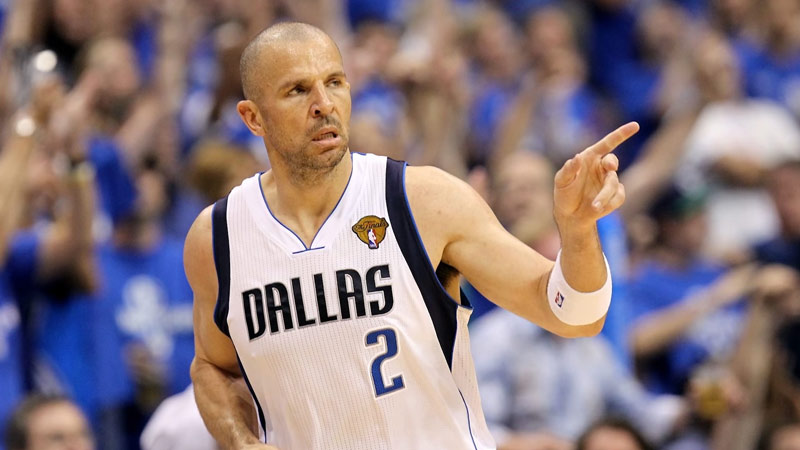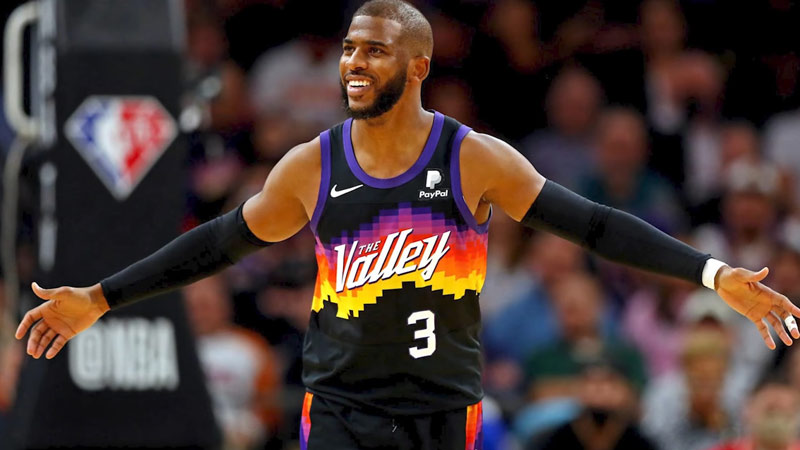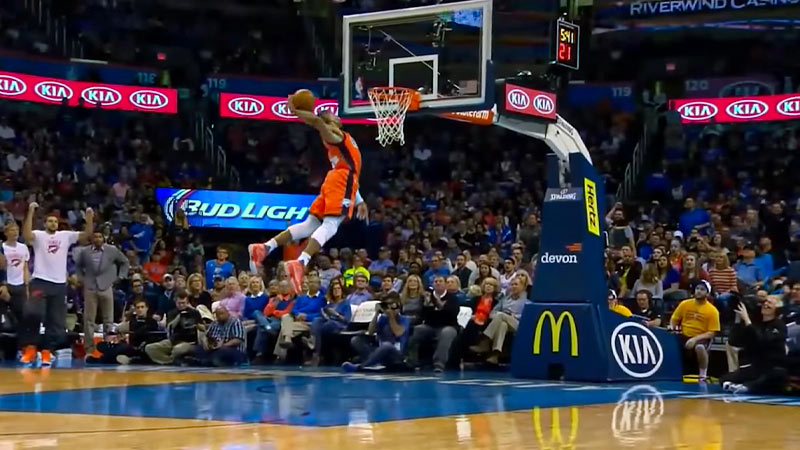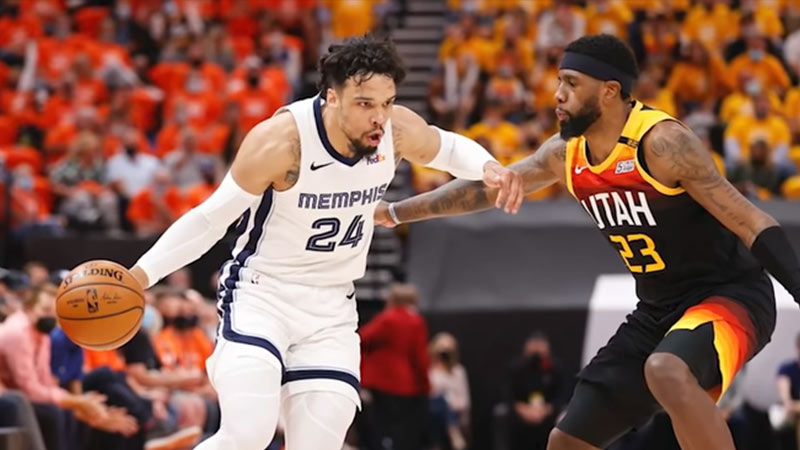In the realm of basketball, positions define the specific roles and responsibilities that players assume on the court. One such position is the point guard (PG), a term widely used in the basketball lexicon.
In this article, we will unravel the meaning behind “PG” in basketball, examining its significance, duties, and impact on the game.
The point guard, abbreviated as PG, is a crucial position that holds the reins of a team’s offense. Serving as the primary ball-handler and playmaker, the point guard is responsible for directing the team’s strategies, orchestrating plays, and distributing the ball to create scoring opportunities.
This introductory exploration will shed light on the key roles and unique responsibilities of point guards, unraveling their influence in shaping the dynamics of a basketball game.
What Does Pg Mean in Basketball?
In basketball, the abbreviation “PG” stands for “point guard.” The point guard is a position on the court and is typically responsible for directing the team’s offense. They are often considered the team’s primary ball-handler and playmaker.
The point guard’s main role is to bring the ball up the court, set up plays, and distribute the ball to their teammates to create scoring opportunities.
Point guards are known for their exceptional ball-handling skills, court vision, and ability to make quick decisions under pressure.
They need to possess strong passing abilities, as they are responsible for initiating the team’s offensive plays and setting up their teammates for shots. Point guards are also expected to be proficient in dribbling, shooting, and orchestrating the team’s overall strategy.
In addition to their offensive responsibilities, point guards are typically required to be strong defenders. They must be capable of applying pressure on the opposing team’s point guard and disrupting their plays.
Overall, the point guard is a crucial position in basketball, acting as the team’s floor general and playing a vital role in the team’s success.
Key Roles and Responsibilities of PG in Basketball

The point guard (PG) in basketball plays a pivotal role on the court, with several key roles and responsibilities. Here are some of the primary tasks associated with the point guard position:
Ball-handling and Playmaking
The PG is typically the primary ball-handler, responsible for bringing the ball up the court and initiating the team’s offense. They must have excellent dribbling skills to navigate through defenses and create scoring opportunities for their teammates.
They must also possess exceptional court vision and decision-making abilities to make accurate passes and set up plays.
Passing and Assisting
Point guards are known for their passing abilities. They must be adept at finding open teammates and making both basic and creative passes to create scoring chances.
They should be able to deliver accurate passes in various situations, such as pick-and-rolls, drive-and-kicks, or fast breaks.
Floor General
The PG acts as the team’s floor general, directing and organizing the team’s offensive strategies. They communicate plays, call out adjustments, and ensure that the team executes the coach’s instructions effectively.
They must have a high basketball IQ and the ability to read and react to the game situation in real time.
Shooting
While facilitating the offense is their primary responsibility, point guards should also be capable shooters. They need to keep defenses honest by knocking down open shots from the perimeter.
This scoring threat helps to stretch the defense and create additional opportunities for their teammates.
Defense and Pressure
Point guards are expected to be solid defenders. They often apply pressure on the opposing team’s point guard, attempting to disrupt their plays and force turnovers.
Quick feet, good lateral movement, and active hands are essential defensive traits for a point guard.
Leadership and Communication
The PG serves as a leader on the court, guiding and motivating their teammates. They need to communicate effectively, directing the flow of the game, and encouraging teamwork and cohesion among the players.
The point guard is a versatile and critical position, requiring a combination of skills, basketball IQ, leadership, and court vision. Their ability to handle the ball, create opportunities for their teammates, and lead the team’s offense is crucial to the team’s success.
Who Can Play the Role Of the PG in the NBA?

In the NBA, various players can play the role of point guard (PG) based on their skill sets and team strategies. Here are some types of players commonly seen as point guards in the NBA:
Traditional Point Guards
These are players who excel in ball-handling, passing, and playmaking. They are typically known for their court vision, decision-making, and ability to orchestrate the offense. Examples of traditional point guards include Chris Paul, Rajon Rondo, and Ricky Rubio.
Scoring Point Guards
Some point guards have a strong emphasis on scoring. They possess excellent shooting skills, can create their own shot, and are effective at driving to the basket. These players can combine their scoring ability with playmaking skills. Examples of scoring point guards include Stephen Curry, Damian Lillard, and Kyrie Irving.
Combo Guards
These players have the ability to play both the point guard and shooting guard positions. They can handle the ball and initiate the offense like a point guard but also excel at scoring and shooting like shooting guards.
They provide versatility in their skill set and can switch between positions as needed. Examples of combo guards include James Harden, Russell Westbrook, and Donovan Mitchell.
Playmaking Wings
In some cases, teams deploy versatile wing players with strong playmaking abilities as primary ball-handlers. These players have the size and athleticism to play multiple positions, and their playmaking skills allow them to initiate the offense effectively. Examples include LeBron James, Luka Dončić, and Ben Simmons.
It’s worth noting that the NBA has seen a shift towards positionless basketball in recent years, where players are not confined to specific positions.
This allows for greater flexibility in roles, and teams may employ different players to handle point guard duties based on their strengths and the team’s style of play.
How to Be A PG in the NBA?

Becoming a point guard (PG) in the NBA requires a combination of skills, dedication, and hard work. Here are some steps to help you on your journey:
Develop Ball-Handling Skills
As a point guard, you must have exceptional ball-handling abilities. Practice dribbling drills regularly to improve your control, speed, and ability to change directions quickly. Work on both your dominant and non-dominant hands to become ambidextrous.
Improve Passing and Playmaking
Point guards need to be excellent passers and playmakers. Work on your passing accuracy, timing, and decision-making. Practice making different types of passes, such as bounce passes, chest passes, and lobs. Study the game and learn to read defenses to make effective decisions on when and where to distribute the ball.
Develop Court Vision and Basketball IQ
Point guards should have a high basketball IQ and excellent court vision. Watch NBA games and study how point guards control the game, read defenses, and make smart decisions. Understand offensive sets, defensive rotations, and strategies to be an effective floor general.
Work on Shooting Skills
While facilitating the offense is crucial, point guards also need to be capable shooters. Develop a consistent shooting form and work on shooting from different spots on the court. Practice shooting off the dribble, in catch-and-shoot situations, and shooting from various angles to become a threat from the perimeter.
Improve Quickness and Agility
Point guards need to be quick and agile to penetrate defenses, beat defenders off the dribble, and navigate through tight spaces. Focus on footwork, lateral movement, and explosiveness. Incorporate agility drills, speed training, and plyometric exercises into your workouts.
Enhance Defensive Abilities
Point guards should be strong defenders. Develop defensive skills such as staying in front of your opponent, applying pressure, and anticipating passes and movements. Work on your lateral quickness, defensive stance, and defensive instincts to disrupt opposing point guards.
Develop Leadership and Communication Skills
Point guards are often team leaders and floor generals. Improve your communication skills, both on and off the court. Be vocal, direct your teammates, and provide guidance during games. Develop leadership qualities such as motivating and inspiring your teammates.
Play Competitive Basketball
Seek opportunities to play against tough competition, whether it’s in organized leagues, school teams, or AAU programs. This will help you gain valuable experience, learn to handle pressure, and showcase your skills to scouts and coaches.
Continuously Learn and Adapt
Stay updated with the latest basketball trends, strategies, and player developments. Watch games, study successful point guards, and seek feedback from coaches and mentors. Be open to adapting your game and continuously improving.
Stay Committed and Determined
Becoming an NBA point guard is a challenging journey that requires perseverance and dedication. Stay disciplined in your training, maintain a strong work ethic, and never stop striving to improve your skills.
Remember, the path to becoming an NBA point guard is highly competitive, and it requires both talent and opportunity. Keep working hard, stay focused, and embrace the process of growth and development as you pursue your dream.
FAQs
What is a point guard in basketball?
A point guard, often abbreviated as PG, is a position in basketball that entails being the primary ball-handler and playmaker for the team.
Point guards are responsible for bringing the ball up the court, setting up offensive plays, distributing the ball to their teammates, and orchestrating the team’s overall strategy.
What are the key qualities of a successful point guard?
Successful point guards possess a combination of skills and attributes. These include exceptional ball-handling abilities, court vision, passing accuracy, high basketball IQ, leadership qualities, defensive prowess, and the ability to make quick decisions under pressure.
They are often skilled playmakers, adept at creating scoring opportunities for their teammates.
How does the point guard differ from other positions?
The point guard differs from other positions in basketball primarily due to their role as the team’s primary ball-handler and playmaker.
While other positions may handle the ball at times, the point guard is typically responsible for initiating the team’s offense, setting up plays, and directing the flow of the game. They are often considered the “floor general” and play a vital role in the team’s overall success.
Can any player assume the role of a point guard?
While any player can handle the ball and contribute to playmaking, the position of point guard requires specific skills and attributes. Players who possess exceptional ball-handling, passing, and decision-making abilities, along with a strong basketball IQ, are best suited for the point guard role.
However, in today’s evolving game, versatility and positionless basketball have allowed players from various positions to take on point guard duties at times.
Who are some notable point guards in basketball history?
Basketball history boasts a rich lineage of extraordinary point guards. Legends such as Magic Johnson, John Stockton, Isiah Thomas, and Steve Nash have left an indelible mark on the game.
Current stars like Chris Paul, Stephen Curry, and Russell Westbrook continue to carry the torch, showcasing the impact and importance of the point guard position in the modern era.
Wrapping Up
In basketball, the term “PG” represents the point guard position, which holds immense significance within the sport. The point guard’s role as the primary ball-handler, playmaker, and team leader makes them an integral part of any team’s success.
From their exceptional ball-handling skills to their ability to read the game and create scoring opportunities, point guards exemplify the qualities that make basketball an exhilarating and strategic game.
The role and responsibilities of a point guard not only enhance one’s appreciation of the sport but also shed light on the immense skill and talent required to excel in this pivotal position. Thank you for your time.







